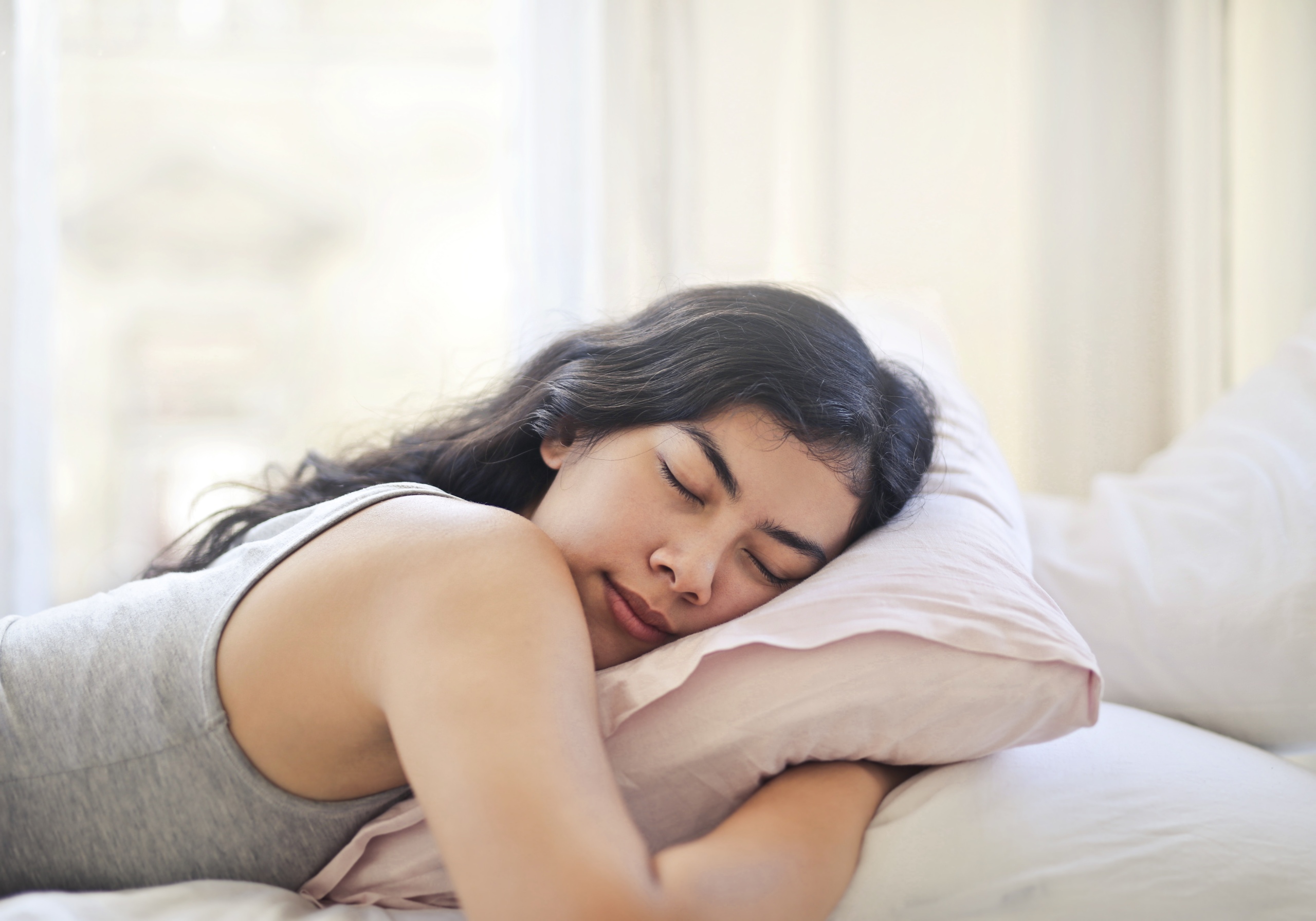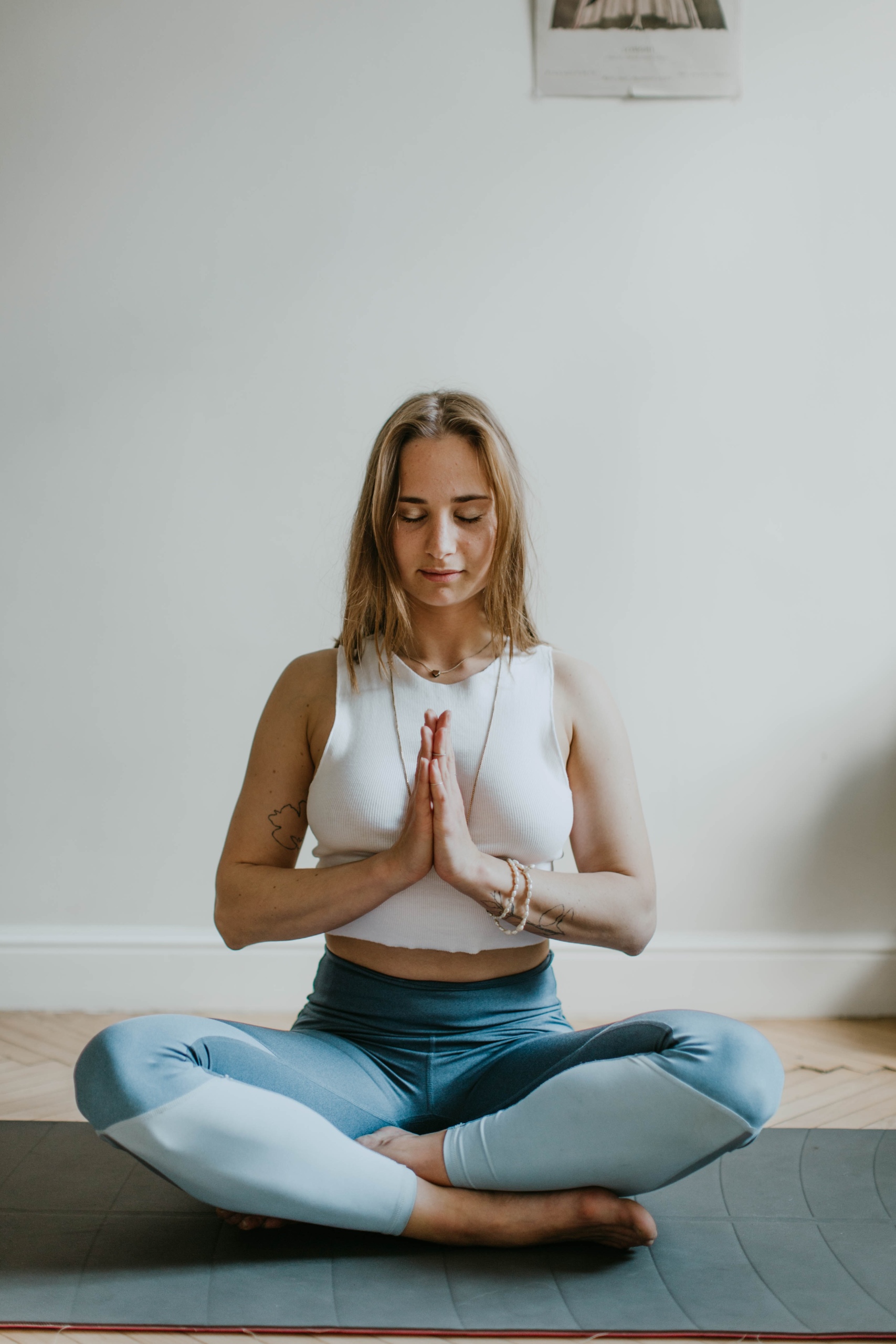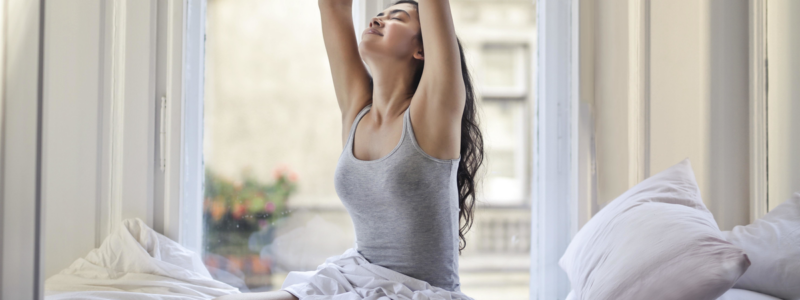Is it morning already? For many people, sleep can feel like it’s in short supply. According to a 2022 sleep study by YouGov, nearly half of Britons (49%) say they don’t get enough sleep per night. Something as important as sleep should not be skimped on, so what can you do about it? Learn how exercise can be part of the solution for better quality sleep – and how getting enough rest can in turn benefit your workouts.
How Sleep Helps with Exercise
On average, adults should aim for seven to nine hours of sleep a day, according to the NHS. Keep in mind the number of hours you should sleep is not a strict rule and can vary from person to person. Regularly getting a good night’s rest has real benefits for your health:
- Kickstarting the body’s healing process. When you sleep your body has time to repair itself. Your immune system sends out proteins called cytokines at night to fight infections and inflammation.
- Improving cognitive functions. Good sleep is important for brain plasticity, or the brain’s ability to make new neural connections and retain new information. Exercise is good for the brain too – unless, according to recent research, you’re not getting enough sleep. Researchers at UCL found that lack of sleep undid the cognitive benefits of exercise in over-50s. All the more reason to get as much shut-eye as you can.
- Keeping stress in check. When cortisol, the body’s primary stress hormone, is elevated it can cause fatigue and even exacerbate stress and anxiety. Consistent sleep helps the body keep cortisol production on a healthy consistent cycle.
So, how does exercise factor in? Good sleep and good exercise go hand in hand. When you get the full amount of rest you need, your body is better prepared and energised for physical activity. This energy-boosting effect isn’t limited to a full night’s sleep. A 2021 study found promising data that napping before or after exercise can help with muscle fatigue and alertness. Our napping tip is to remember to keep it brief (no more than an hour, ideally more like 20 minutes) and before the late afternoon to avoid interfering with evening rest.

How Exercise Benefits Sleep
On the other side, exercise itself can play a role in how well you sleep at night. Emerging data from research like this 2020 exercise training study shows that moderate aerobic exercise can help people get better-uninterrupted sleep and even fall asleep faster. Here’s how to get the best sleep benefits from exercise.
How Many Exercises Will Give You Better Sleep?
Most people only need 30 minutes of aerobic exercise to start seeing a difference in their quality of sleep. Keep in mind, consistency is important. Choose a routine with workouts you can stick to throughout the week to maintain night after night of quality rest.
When’s the Best Time to Exercise for Improving Sleep?
Is timing everything? Kind of. When you exercise you increase your body’s core temperature, which makes you more alert. “Cooling down” back to a normal level can take at least 30 minutes, so don’t schedule workouts too close to bedtime.
What Exercises Help You Sleep Better?
Anything involving aerobic activity is helpful here. Running, swimming, cycling, or other moderate aerobic activities you fancy all check the box.
Need extra help winding down after a busy day? Exercise routines incorporating meditation and breathing techniques, like yoga, can help you relax before going to bed. You could also try listening to soothing sleep sounds at night to help you drift off.
Use Exercise to Support Your Health Goals
When we think about the future of wellness, it’s about making choices for yourself that holistically support your health. And when it comes to these goals, good sleep and regular exercise play an important role. At David Lloyd Clubs, we have many options to help improve your well-being, with modern equipment, spacious workout facilities and fitness classes to help you keep on the move. Find what excites you and see how we can help support you on your wellness journey at your local David Lloyd Clubs.





